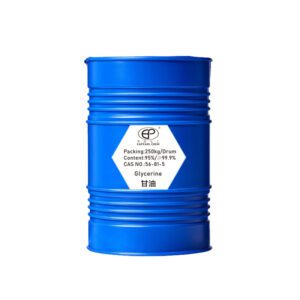Ah, the age-old debate: ethanol or isopropyl alcohol? It’s like choosing between a classic martini and a trendy craft cocktail. Both have their merits, but which one will give your business the buzz it needs?
Ethanol and isopropyl alcohol differ in chemical structure, source, and applications. Ethanol, derived from sugar fermentation, is used in food, cosmetics, and fuel. Isopropyl alcohol, synthesized from propene, is used in cleaning and disinfectants. Both are flammable and antiseptic, but isopropyl is more effective in killing bacteria and is not for ingestion.


What is Ethanol, and Why Should You Care?
Let’s start with the life of the party: ethanol. Also known as ethyl alcohol, this bad boy is as versatile as a Swiss Army knife. It’s in everything from your hand sanitizers to your perfumes. But why should you, as a business, give a hoot?
Well, ethanol is like that reliable friend who’s good at everything. Need a disinfectant? Ethanol’s got your back. Need a solvent? Ethanol says, “I’m your guy.”


How is Ethanol Produced, and Does It Matter?
Ethanol comes from the fermentation of sugars. Think of it as brewing beer but for industrial purposes. Corn, sugarcane, you name it. The source matters because it affects the ethanol’s purity and, consequently, its effectiveness.
So, when choosing ethanol, always consider its origin. It’s like knowing the terroir of your wine; it adds that extra layer of sophistication to your choice.


What Are the Different Grades of Ethanol?
You’ve got your food-grade ethanol, the crème de la crème, perfect for pharmaceuticals and food processing. Then there’s the industrial-grade ethanol, the rugged, blue-collar type ideal for heavy-duty applications.


What Are the Common Uses of Ethanol?
Ethanol is the jack-of-all-trades in the alcohol world. It’s used in everything from fuels to fragrances.
So, whether you’re in the business of making perfumes that could make a skunk smell good or producing biofuels that promise a greener tomorrow, ethanol is your go-to guy.


Is Ethanol Safe to Use?
Safety first, folks! Ethanol is generally safe for industrial applications, but like anything in life, it has its limits.
Always follow safety guidelines when handling ethanol. It’s like handling a baby: do it with care, and you’ll be rewarded with smiles (or in this case, successful industrial applications).


What’s the Environmental Impact of Ethanol?
In today’s world, if you’re not thinking green, you’re just not thinking. Ethanol, thankfully, is on the eco-friendly side.
It’s produced from renewable resources and has a lower carbon footprint compared to fossil fuels. So, if you’re looking to earn some green karma, ethanol is a good bet.


What is Isopropyl Alcohol, and How Does It Compare to Ethanol?
Now, let’s talk about the other contender in this ring: isopropyl alcohol, or IPA for those in the know. This is the alcohol that means business. It evaporates quickly and leaves no residue, making it a favorite for cleaning electronic components.
But how does it compare to ethanol? Well, think of IPA as the no-nonsense cousin of ethanol. It’s not as versatile, but what it does, it does well.


How is Isopropyl Alcohol Produced?
IPA is usually made from propene and water through a chemical reaction. It’s like the lab-grown diamond of the alcohol world: not natural, but just as effective.
So, when choosing between ethanol and IPA, consider how they’re made. Ethanol is the organic, farm-to-table option, while IPA is the fast-food of alcohols: quick, effective, and no-nonsense.


What Are the Different Grades of Isopropyl Alcohol?
Just like ethanol, IPA also has its grades. You’ve got your technical grade, which is the workhorse of the IPA world, ideal for industrial cleaning.
Then there’s the pharmaceutical grade, the purest of the pure, often used in medical applications. So, whether you’re cleaning machinery or sterilizing surgical equipment, there’s an IPA grade for you.


What Are the Common Uses of Isopropyl Alcohol?
IPA is a bit of a specialist. It’s excellent for cleaning and disinfecting but doesn’t have the wide range of applications that ethanol does.
So, if your business is focused on electronics, healthcare, or any field requiring precise cleaning and disinfection, IPA should be on your shopping list.


Is Isopropyl Alcohol Safe to Use?
Safety is no joke, and when it comes to IPA, you’ll want to take extra precautions. It’s more toxic than ethanol and should never be ingested.
Always follow safety guidelines when using IPA. It’s like handling fireworks: thrilling but potentially dangerous if not treated with respect.


What’s the Environmental Impact of Isopropyl Alcohol?
IPA isn’t as green as ethanol, but it’s not a complete environmental villain either.
It’s usually produced from fossil fuels, so it has a higher carbon footprint. But on the plus side, it evaporates quickly, reducing the risk of environmental contamination.
Conclusion
Choosing between ethanol and isopropyl alcohol is like choosing between a Swiss Army knife and a specialized tool. Both have their merits, and the best choice depends on your specific needs.
So, whether you’re a jack-of-all-trades or a master of one, this guide should help you make an informed decision. After all, in the world of business, knowledge is not just power; it’s profit.


Cheers to making the right choice for your business! 🥂








